Posted: April 19th, 2017 | Author: Sven | Filed under: EDaWaX, journals | Tags: data archives, Data Sharing, DOI, Linking Data and Publications | Comments Off on Managing research data using the ZBW Journal Data Archive

Yesterday, a new blog post has been published on ZBW Mediatalk in which I describe the history and the background of the EDaWaX-project that led to the development of the ZBW Journal Data Archive. The Journal Data Archive (JDA) is a service for editorial offices of journals in economics and partially also in the social sciences. Currently this service is free of charge and already two renowned journals are using our services productively.
The JDA offers direct linking between published research papers and the underlying data, that has been used to generate the findings of an article. The workflow is time-saving and easy to handle: Authors of a journal’s article submit their replication files to the system and describe these files with additional metadata. For us it was quite important to find a useful balance between the efforts a user has to invest to generate these additional metadata and the needs of our information systems. For the development of our metadata schema, we followed the motto ‘as much as necessary, as little as possible.’ Read the rest of this entry »
Posted: February 15th, 2017 | Author: Sven | Filed under: Data Sharing, found on the net | Tags: data citation | Comments Off on UK Data Service launches Syntax Upload Facility
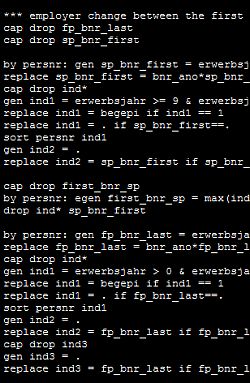 The UK Data Service has just released a new service called Syntax Upload Facility. The Syntax Upload Facility enables researchers to upload and share syntax they create using UK Data Service data, building a library of syntax for other users to utilise and cite. The new Syntax Upload Facility aims to enhance researcher’s work and provide an opportunity to increase the impact of research through having syntax used and cited by others. UK Data Service also suggests how to cite these syntax-files. In addition, the syntax itself has a DOI, what promotes uniform citation standards.
The UK Data Service has just released a new service called Syntax Upload Facility. The Syntax Upload Facility enables researchers to upload and share syntax they create using UK Data Service data, building a library of syntax for other users to utilise and cite. The new Syntax Upload Facility aims to enhance researcher’s work and provide an opportunity to increase the impact of research through having syntax used and cited by others. UK Data Service also suggests how to cite these syntax-files. In addition, the syntax itself has a DOI, what promotes uniform citation standards.
The syntax created using our datasets can be uploaded by clicking Contribute your syntax/code at the bottom of the respective catalogue records. Once logged in, the syntax files can be uploaded in various formats including SPSS, Stata, SAS and R.
The Syntax Upload Facility then automatically creates a citation and a file which can be downloaded by other users. The new facility is particularly useful for researchers, students and those teaching with data. An example is available here.
Read the rest of this entry »
Posted: February 14th, 2017 | Author: Sven | Filed under: Data Sharing, EDaWaX, journals | Tags: replication studies, research paper | Comments Off on New Working Paper published: ‘The Economics of Replication’
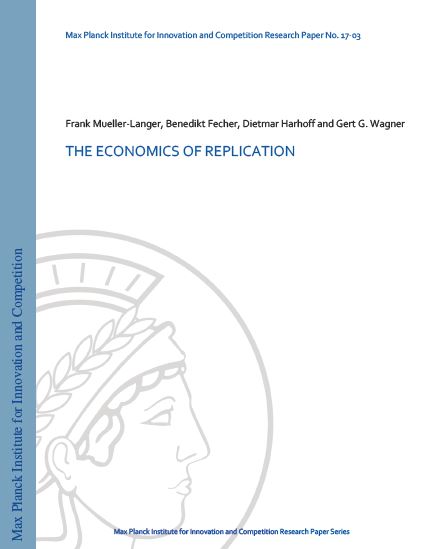 Frank Mueller-Langer, Benedikt Fecher, Dietmar Harhoff and Gert G. Wagner have published a new working paper on the ‘economics of replication’.
Frank Mueller-Langer, Benedikt Fecher, Dietmar Harhoff and Gert G. Wagner have published a new working paper on the ‘economics of replication’.
In the abstract of the paper, the researchers state:
“Replication studies are considered a hallmark of good scientific practice. Yet they are treated among researchers as an ideal to be professed but not practiced. To provide incentives and favorable boundary conditions for replication practice, the main stakeholders need to be aware of what drives replication. Here we investigate how often replication studies are published in empirical economics and what types of journal articles are replicated. We find that from 1974 to 2014 less than 0.1% of publications in the top-50 economics journals were replications. We do not find empirical support that mandatory data disclosure policies or the availability of data or code have a significant effect on the incidence of replication. The mere provision of data repositories may be ineffective, unless accompanied by appropriate incentives. However, we find that higher-impact articles and articles by authors from leading institutions are more likely to be subject of published replication studies whereas the replication probability is lower for articles published in higher-ranked journals.”
The paper is available here.
Read the rest of this entry »
Posted: December 14th, 2016 | Author: Sven | Filed under: Report, Research Data | Tags: big data, Guidelines, oecd, privacy | Comments Off on OECD publishes new guidelines on research ethics & new forms of data
 The variety and volume of the New Forms of Data that are available with potential to inform research
The variety and volume of the New Forms of Data that are available with potential to inform research
in the social sciences is rapidly expanding. Much of this falls in the category of ‘Big Data’ which are
characterised by their size and complexity and the fact that they are often not amenable to the more
traditional forms of statistical analysis used in social science research.
New kinds of data are rapidly becoming available in massive quantities, providing a record of the transactions we carry out, the communications we make and other social and economic activities. These data offer significant potential for research in the social sciences and beyond, with the possibility of new insights and benefits to society, health and the economy. Although these new forms of data provide exciting possibilities for future research, using them also presents ethical and practical challenges – the risk of disclosure of identities, the ethics of using such data in research and reputational risks for organisations collecting or creating data.
Read the rest of this entry »
Posted: November 14th, 2016 | Author: Sven | Filed under: Report | Tags: Knowledge Exchange, Training | Comments Off on KE publishes recommendations for a Repository for Training Materials on RDM
 Knowledge Exchange (KE) has recently released recommendations for a repository for training materials on research data management (RDM). Following a workshop of experts in February 2016 in London and the publication of a report called “Training for research data management: comparative European approaches”, the currently published report focusses on requirements for a repository on RDM training materials.
Knowledge Exchange (KE) has recently released recommendations for a repository for training materials on research data management (RDM). Following a workshop of experts in February 2016 in London and the publication of a report called “Training for research data management: comparative European approaches”, the currently published report focusses on requirements for a repository on RDM training materials.
One of the practical outcomes of the workshop was that no international repository for information on training resources currently exists. To make existing nationally focused training material Findable, Accessible, Interoperable and Reusable (FAIR) an international initiative is needed to establish a repository or platform to deposit or link training materials on RDM. This would also help to train the urgently needed data stewards requested in the report ‘Realising the European Open Science Cloud’ by the High Level Expert Group on the European Open Science Cloud (EOSC). Read the rest of this entry »
Posted: November 4th, 2016 | Author: Sven | Filed under: EDaWaX | Tags: application, ckan, Software | Comments Off on New Guest Blog for TRN
 In a Guest Blog for the Replication Network, I wrote a little bit about the history of the EDaWaX project and listed some of the project’s outputs. In addition -and possibly even more important- I also outlined the current and future developments: In particular I dwelled on the question what remains after the project completed its second funding term in autumn.
In a Guest Blog for the Replication Network, I wrote a little bit about the history of the EDaWaX project and listed some of the project’s outputs. In addition -and possibly even more important- I also outlined the current and future developments: In particular I dwelled on the question what remains after the project completed its second funding term in autumn.
One answer is the ZBW Journal Data Archive. The technological core of the project has become part of ZBW’s infrastructure. Currently, we are still in the process of enhancing technical functionalities and layout of the application. In the next weeks I will report on detail on the application. Read the rest of this entry »
Posted: August 2nd, 2016 | Author: Sven | Filed under: Data Sharing, found on the net | Tags: replication studies, social sciences | Comments Off on Dutch research funder grants 3 million Euros for replication studies
 The Netherlands Organisation for Scientific Research (NWO), one of the biggest science-funding bodies in the Netherlands, is making 3 million euros available for a Replication Studies pilot programme. In this programme, scientists will be able to repeat research that has been carried out by others. The pilot focuses on replicating studies that have a large impact on science, government policy or the public debate – namely on the area of the social sciences and health research and healthcare innovation.
The Netherlands Organisation for Scientific Research (NWO), one of the biggest science-funding bodies in the Netherlands, is making 3 million euros available for a Replication Studies pilot programme. In this programme, scientists will be able to repeat research that has been carried out by others. The pilot focuses on replicating studies that have a large impact on science, government policy or the public debate – namely on the area of the social sciences and health research and healthcare innovation.
The pilot programme Replication Studies focuses on two types of research: On the one hand it focusses on replications with existing data: the datasets from the original study are reanalysed. On the other hand, it focusses on reproductions (with new data): a data collection is put together, which is subjected to the same research protocol as in the original study (read more about the different definitions of reproduction and replication). Read the rest of this entry »
Posted: July 26th, 2016 | Author: Sven | Filed under: Data Sharing, found on the net | Tags: European Commission, Horizon2020, research data management | 1 Comment »
 Yesterday, the European Commission (EC) announced an investment of 8.5 billion Euros into research and innovation in 2017.
Yesterday, the European Commission (EC) announced an investment of 8.5 billion Euros into research and innovation in 2017.
This investment follows an update to the work programme of the 8th research framework program of the European Union (better known as “Horizon 2020”).
From the perspective of the research data management, this update incorporates some important changes: The current Open Research Data Pilot will be extended so that research data sharing by default will apply to all Horizon 2020 calls covered by the 2017 Work Programme. This means that grant beneficiaries must take measures to enable third parties to access, mine, exploit, reproduce and disseminate research data underlying their scientific peer reviewed publications free of charge. Horizon 2020 beneficiaries are encouraged to also share datasets beyond these publications. Projects can “opt-out” of these provisions in case of conflicts with IPR, personal data protection, national security or other concerns. Read the rest of this entry »
Posted: July 21st, 2016 | Author: Sven | Filed under: German, Projects, Research Data | Tags: infrastructure, network | Comments Off on New countrywide RD-INF Project approved: Generic Research Data Infrastructure (GeRDI) ready to get off the starting blocks
 In my previous post, I presented some analyses and recommendations the RfII (German Council for Scientific Information Infrastructures) made for the future development and structuring of the German national landscape on research data management. For instance, the RfII found, that
In my previous post, I presented some analyses and recommendations the RfII (German Council for Scientific Information Infrastructures) made for the future development and structuring of the German national landscape on research data management. For instance, the RfII found, that
‘there is an overall absence of coordination, and current efforts often take the form of parallel, project-based initiatives. Universal access to services for data management is lacking, as the key actors at present are individual institutions and organisations, and their efforts often suffer from limited financing and/or excessive niche focus. In addition, the high staff turnover means that valuable know-how is frequently lost. Furthermore, the range of services being provided is impaired by the absence of governance mechanisms which could impart greater strategic direction.’
Currently, when scientists generate research data often the question arises where to store the data. Currently, only a handful of universities already have an appropriate infrastructure in place while for the big majority such a research data infrastructure is still missing.
Also from the perspective of a researcher who is looking for (reusing) data already available, the current state is unsatisfactory: The few research data infrastructures currently available at German universities, but also other research data centres from different subjects, are hardly linked with other data repositories and often remain data silos. Read the rest of this entry »
Posted: July 19th, 2016 | Author: Sven | Filed under: German, Report, Research Data | Tags: funding, recommendations | Comments Off on ‘Council for Scientific Information Infrastructures’ publishes recommendations on RDM structures and processes
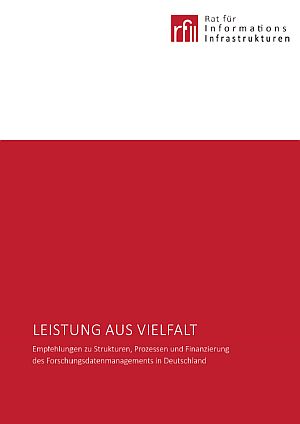 In June, the German Council for Scientific Information Infrastructures (RfII) has published some recommendations on determinats of future research data management and the development of corresponding infrastructures.
In June, the German Council for Scientific Information Infrastructures (RfII) has published some recommendations on determinats of future research data management and the development of corresponding infrastructures.
Because I believe that these recommendations are also of broader interest to our readers, I would like to highlight some of recommendations of the report.
But first of a all, some introductory words on the RfII: The German Council for Scientific Information Infrastructures was established in November 2014. The 24 members work in an honorary capacity and were appointed by the Joint Science Conference of the Federal States and the Federal Government of Germany for a service period of four years. The Rfll was tasked by Germany’s Joint Science Conference (GWK) with formulating broad-based recommendations for the science system in Germany as a whole.
Consequently, the recommendations presented in the report have ramifications for a variety of actors in the domains of politics and science. The Rfll is convinced that the adoption of new ways in dealing with research data as well as long-term preservation and accessibility will be a significant, common challenge for all actors in the years ahead. Read the rest of this entry »
Posted: May 20th, 2016 | Author: Sven | Filed under: Report | Tags: Knowledge Exchange, RDM, Training | Comments Off on New KE report: Training for research data management: comparative European approaches
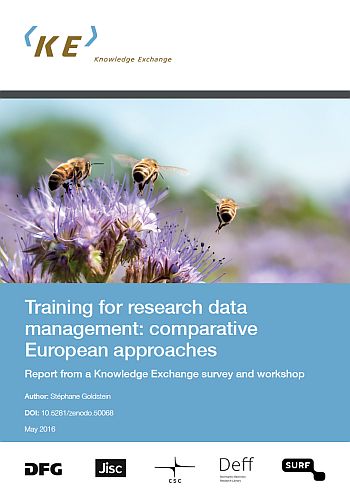 Knowledge Exchange (KE) has released a new report: “Training for research data management: comparative European approaches” is it called and it marks the preliminarly result of a longer time of discussions among several European stakeholders and communities.
Knowledge Exchange (KE) has released a new report: “Training for research data management: comparative European approaches” is it called and it marks the preliminarly result of a longer time of discussions among several European stakeholders and communities.
At the end of 2015, KE initiated a project to compare approaches in research data management (RDM) training within the partnership’s five member countries. The project was structured around two strands of activity:
The group developed a survey to collect information on current practice around RDM training, in order to provide an overview of the RDM training landscape in several European countries. Subsequently, a workshop in February followed to share successful approaches to RDM training and capacity building provided within institutions and by infrastructure. Read the rest of this entry »
Posted: May 3rd, 2016 | Author: Sven | Filed under: Conference, EDaWaX | Tags: presentation, talk | Comments Off on EDaWaX: Final spurt
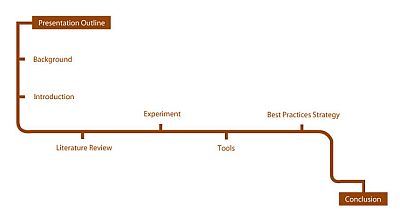 Slowly but steady, the EDaWaX project draws to a close. For me a good point in time to outline some of the final steps of our project.
Slowly but steady, the EDaWaX project draws to a close. For me a good point in time to outline some of the final steps of our project.
First of all, we are very much engaged in transforming EDaWaX from a project to a regular service for scholarly journals in economic sciences. Therefore we still have a lot of work to do: There are still some issues to solve on the level of software engineering. Currently we are also in the process of improving some of the application’s features and to update the documentation. Nevertheless the software for journals in economics and business research already is available. Starting in the next months we will offer our service (a publication-related data archive) free of charge for editorial offices.
Second, we will present some rescent results of the project at national and international conferences, in roadshows and on annual meetings of learned societies in economics and business studies.
This program starts in two weeks in Munich, where we will disucss the topic of managing research data with the editors of journals in business research and present our software solution at the annual meeting of the German Association for Business Research (VHB), the German learned society for business studies. Read the rest of this entry »
Posted: April 21st, 2016 | Author: Sven | Filed under: Data Sharing, Report | Tags: Replication, replication studies, research paper | Comments Off on New Working Paper: “Perceptions and Practices of Replication by Social and Behavioral Scientists”
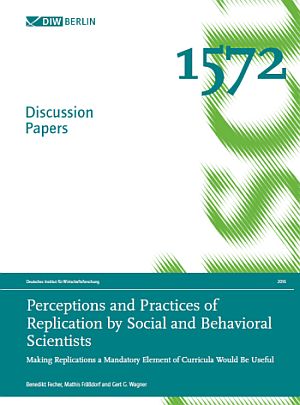 One of our project partners has just released a publication that deals with the replication crises in economics and the social sciences.
One of our project partners has just released a publication that deals with the replication crises in economics and the social sciences.
In the abstract the three autors state:
We live in a time of increasing publication rates and specialization of scientific disciplines. More and more, the research community is facing the challenge of assuring the quality of research and maintaining trust in the scientific enterprise. Replication studies are necessary to detect erroneous research. Thus, the replicability of research is considered a hallmark of good scientific practice and it has lately become a key concern for research communities and science policy makers alike.
In their discussion paper Fecher, Fräßdorf and Wagner analyze perceptions and practices regarding replication studies in the social and behavioral sciences. Their analyses are based on a survey of almost 300 researchers.
Read the rest of this entry »
Posted: April 5th, 2016 | Author: Sven | Filed under: Data Sharing, EDaWaX, Opinion | Tags: replication studies | Comments Off on Note on “research parasites” published in SCIENCE
 Benedikt Fecher and Gert G. Wagner, both also affiliated with the EDaWaX-project, have just published a note in a recent issue of sience under the title “A research symbiont”.
Benedikt Fecher and Gert G. Wagner, both also affiliated with the EDaWaX-project, have just published a note in a recent issue of sience under the title “A research symbiont”.
The background for their note is the editorial of D. Longo and J. Drazen – two editors of the New England Journal of Medicine – published in January 2016. In the editorial, Longo and Drazen critically assessed the concept of data sharing in medicine. Their main concern is that a “new class of research person will emerge” that uses data, which were gathered by other researchers, for their own original research questions. The authors, although indirectly, later referred to this class of researcher as “research parasites”.
Fecher and Wagner argue contrarily: For them, the two editors of the New England Journal of Medicine miss the core of the scientific paradigm when writing that researchers may “even use the [open] data to try to disprove what the original investigators had posited.” Instead, Fecher and Wagner argue that data users are research symbionts and benefit the research ecosystem: Using research data to try to disprove a result is good scientific practice, especially in light of the replication crisis (not only) in the social sciences.
A longer version of the Fecher’s and Wagner’s note is available open access (working paper).
Picture: “share-computer-key-260″ by Emilio Quintana on flickr.com. License: CC BY-NC-SA 2.0
Posted: March 3rd, 2016 | Author: Sven | Filed under: found on the net, Report, Workshop | Tags: Knowledge Exchange, Software, sustainability | Comments Off on Knowledge Exchange: New Report on Research Software Sustainability published
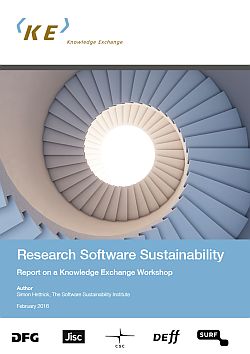
Knowledge Exchange, a consortium of five national organisations within Europe tasked with developing infrastructure and services to enable the use
of digital technologies to improve higher education and research, has just a released another report on research software sustainability. The report is motivated by the importance of research software for the whole scientific process in every research discipline. The report argues:
“Without software, modern research would not be possible. Understandably, people tend to marvel at results rather than the tools used in their discovery, which means the fundamental role of software in research has been largely overlooked. But whether it is widely recognised or not, research is inexorably connected to the software that is used to generate results, and if we continue to overlook software we put at risk the reliability and reproducibility of the research itself.”
Read the rest of this entry »


 The UK Data Service has just released a new service called Syntax Upload Facility. The Syntax Upload Facility enables researchers to upload and share syntax they create using UK Data Service data, building a library of syntax for other users to utilise and cite. The new Syntax Upload Facility aims to enhance researcher’s work and provide an opportunity to increase the impact of research through having syntax used and cited by others. UK Data Service also suggests how to cite these syntax-files. In addition, the syntax itself has a DOI, what promotes uniform citation standards.
The UK Data Service has just released a new service called Syntax Upload Facility. The Syntax Upload Facility enables researchers to upload and share syntax they create using UK Data Service data, building a library of syntax for other users to utilise and cite. The new Syntax Upload Facility aims to enhance researcher’s work and provide an opportunity to increase the impact of research through having syntax used and cited by others. UK Data Service also suggests how to cite these syntax-files. In addition, the syntax itself has a DOI, what promotes uniform citation standards. Frank Mueller-Langer, Benedikt Fecher, Dietmar Harhoff and Gert G. Wagner have published a new working paper on the ‘economics of replication’.
Frank Mueller-Langer, Benedikt Fecher, Dietmar Harhoff and Gert G. Wagner have published a new working paper on the ‘economics of replication’. The variety and volume of the New Forms of Data that are available with potential to inform research
The variety and volume of the New Forms of Data that are available with potential to inform research Knowledge Exchange
Knowledge Exchange In a
In a  The Netherlands Organisation for Scientific Research (
The Netherlands Organisation for Scientific Research ( Yesterday, the European Commission (EC)
Yesterday, the European Commission (EC)  In my previous post, I presented some analyses and recommendations the
In my previous post, I presented some analyses and recommendations the  In June, the German Council for Scientific Information Infrastructures (
In June, the German Council for Scientific Information Infrastructures (
 Slowly but steady, the EDaWaX project draws to a close. For me a good point in time to outline some of the final steps of our project.
Slowly but steady, the EDaWaX project draws to a close. For me a good point in time to outline some of the final steps of our project. One of our project partners has just released a publication that deals with the replication crises in economics and the social sciences.
One of our project partners has just released a publication that deals with the replication crises in economics and the social sciences.







